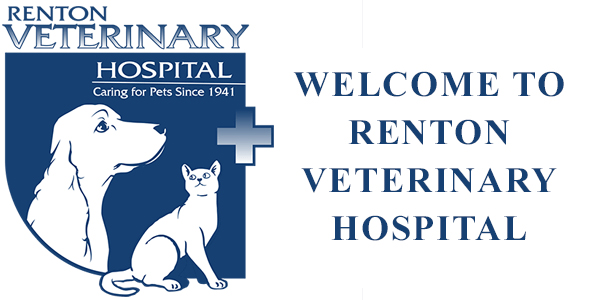If your pet’s bad breath drives you away as she tries to snuggle up to you on the couch, you may be thinking it’s time for a dental chew. But bad breath can signify deeper dental problems than a simple treat can fix – namely pet periodontal disease.
The problems with periodontal disease go further than bad breath. With over 85% of pets affected by the time they reach 3 years of age, it’s no surprise that this topic gets a lot of our attention. Also known as dental disease, periodontal disease in pets can cause bleeding gums, tooth loss, and even systemic disease of the heart, liver, and kidneys.
Luckily, periodontal disease is preventable. We know that conscientious pet owners want to do the best they can for their pets. Here’s some information to help you do just that.
HOW PERIODONTAL DISEASE HAPPENS
Periodontal disease in pets is the progressive inflammation of the supporting structures of the teeth. Here’s how it workds:
- It starts when bacteria in the mouth form plaque that sticks to the teeth.
- Minerals in your pet’s saliva then bond with the plaque, causing it to harden into tartar.
- Bacteria that cling to the plaque and tartar then work their way under your pet’s gum line, causing gum inflammation (gingivitis).
- If tartar is not controlled, it can progress to periodontitis. When this happens, bacteria destroy the supporting structures of the tooth, including the soft tissues surrounding it, the root, and the bone below.
SIGNS OF PERIODONTAL DISEASE
Pet owners sometimes have a difficult time noticing the first signs of dental disease. We recommend annual preventive care visits in order to spot the signs of dental disease early and treat small problems before they become advanced.
Signs to look for include:
- Bad breath
- Drooling
- Red or bleeding gums
- Pawing at the mouth
- Pain or sensitivity
- Loss of interest in chew toys
- Difficulty eating (sometimes looks like messy eating)
- Chewing on one side of the mouth
- Sudden preference for soft food
It is rare that an animal will actually stop eating from dental disease, but you may notice changes in their interest or comfort while eating.
TREATING AND PREVENTING PERIODONTAL DISEASE
Although dental disease is common, the good news is that it is preventable. Treatment and prevention of dental disease can add years to your pet’s life and help keep them comfortable and healthy. Here’s how we do it:
- Regular wellness exams, even for seemingly healthy pets
- Professional dental cleanings as recommended
- Digital dental x-rays to check for disease under the gum line
- At home care, including brushing your pet’s teeth daily (we can teach you how!)
If you have any questions about your pet’s health, please don’t hesitate to give us a call. Your team at Renton Veterinary Hospital is ready to help!

